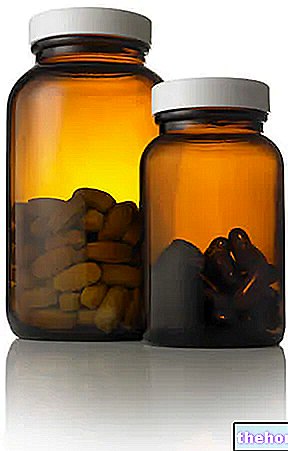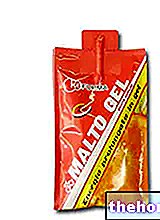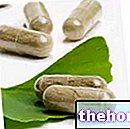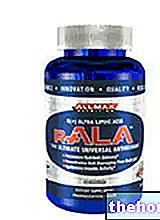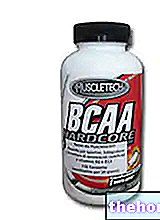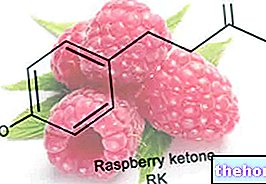
About Glutam Max - PROACTION
Glutam Max - PROACTION
Food supplement based on L-Glutamine in powder form
FORMAT
Jar of 300 grams
COMPOSITION
l-Glutamine soluble powder
Measuring cup: L-Glutamine: 1.75 grams
NOTE: the l-glutamine contained in Glutam Max is a Degussa product and meets all the requirements of the Food Chemical Codex, Fourth Edition (National Academy Press, Washington D.C. 1996).
Product features Glutam Max - PROACTION

L-Glutamine - It is synthesized in various tissues, particularly in the muscle, starting from glutamate and ammonia, in the presence of the enzyme glutamine synthetase. Glutamine is the most abundant free form amino acid in the human body.
Defined as a NON ESSENTIAL amino acid, its dietary intake can become indispensable in cases of greater need, which occur during intense training or serious pathological conditions (severe trauma, burns, etc.).
The high plasma concentrations of glutamine fully reflect the key role of this amino acid in the metabolic balance of man, since it falls within:
- In the transport of amino groups, necessary for protein synthesis;
- In the transport of amino groups, intended for elimination in the form of urea;
- In the synthesis of other amino acids, such as arginine;
- In the synthesis of powerful antioxidants such as glutathione;
- In the "energetic and excitatory action at the level of the central nervous system;
- In energy processes, representing a useful source both in the process of gluconeogenesis and in the replenishment of the krebs cycle.
- In the processes of cell division of cells with rapid turnover (cells of the immune system, intestinal and hematopoietic stem cells);
Potential benefits for sports use Glutam Max - PROACTION
It is now known that this amino acid is affected by intense physical activity, dropping dramatically following periods of vigorous training. The significant drop in glutamine (source of primary importance for leukocyte survival) inevitably affects the athlete's health, significantly reducing the immune defenses and facilitating the onset of bacterial and viral infections, thus compromising their physical and mental abilities . This condition, together with other well known ones, such as chronic fatigue and hormonal deregulation, define a picture known to many sportsmen: overtraining syndrome. In this case, the supplementation with glutamine has proved effective in several studies, increasing leukocyte survival, regulating lymphocyte levels, and protecting the athlete from attack by pathogenic microorganisms, although the molecular mechanisms still remain to be elucidated.
However, glutamine is used in sports with the aim of obtaining other results:
- Facilitate recovery: this hypothesis is supported by studies that show an increase in muscle glycogen stores of 25% following training with carbohydrate supplementation and 8 g of glutamine. However, this has been followed by other studies, which disprove these results and which highlight a greater benefit in terms of recovery, with a balanced post-workout meal.
- Improve performance: the scientific literature seems to agree in considering the absence of ergogenic effects following the administration of glutamine alone;
- Increase lean mass: positive results were obtained following the association of glutamine with BCAAs and carbohydrates.
- Reduce the catabolic effects of intense training: the only evidence comes from a study showing the plasma reduction of the creatinkinase enzyme, in the group treated with glutamine, following physical exercise;
- Increase GH secretion: a 1995 study shows a 4-fold increase in GH, compared to the control, following the intake of 2 g of glutamine. However, it is necessary to clarify the absence of subsequent confirmations and the fact that intense training can increase the plasma levels of this hormone by 20 times, regardless of glutamine supplementation.
To this it must be added that a large part of the free glutamine taken orally is metabolized in the intestinal cells, with a consequent lowering of its bioavailability. Studies show how it is possible to obtain a greater plasma increase of this amino acid in overtraining syndromes, simply by introducing 20/30 grams of protein in the post workout.
Method of use recommended by the company - Glutam Max - PROACTION
Dissolve 1 measuring cup of 1.75g in water or other beverage. Drink once a day or as needed.
Method of use in sports Glutam Max - PROACTION
The scientific literature is still far from defining an optimal dosage of this amino acid, especially for applications in the sports field, which are somewhat discussed.
In common practice, very high doses are taken, which even exceed 20 grams, and which, as far as the scientific world transpires, does not seem to be particularly useful. Positive results in terms of post-workout muscle recovery and protective action were obtained with significantly lower dosages, between 2 and 8 grams per day (the same amount that would be obtained for a 70 kg man who consumes 0.8 / 1.6 grams of protein per kg of body weight).
Given the powder formulation, it should be noted that the solubilization in water or other liquid seems to facilitate the intestinal diffusion mechanism of this amino acid, as long as it is consumed quickly by its preparation.
On the basis of the few scientific evidences, one could resort to a pre-workout administration, to increase the glutamine pull by supplying the muscle one, and in the post-workout as an adjuvant of the anabolic window.
How to optimize your business - Glutam Max - PROACTION
From the various studies it emerges that the association of
Glutamine + BCAA + Proteins determine an increase in lean mass after weeks of supplementation and heavy exercise;
Glutamine + carbohydrates, taken in the post work-out anabolic window, can facilitate glucose uptake and glycogen resynthesis; taken before intermittent training, they seem to improve athletic performance and reduce the sensation of fatigue.
Glutamine + creatine + ribose does not seem to provide particular benefits in terms of body composition variation.
Glutam Max side effects - PROACTION
Several studies have experimented with supplementation with oral glutamine doses even higher than 20 grams, without recording any particular side effects.
A single long-term study, with athletes taking doses of 28 grams per day for 2 weeks, distributed in 4 different intakes, found no side effects.
Precautions for use Glutam Max - PROACTION
The product is contraindicated in cases of renal or hepatic pathology, cardiovascular disease and / or hypertension, during pregnancy, during lactation, under 12 years and in adolescents not yet trained.
In case of prolonged use (over 6/8 weeks) the doctor's opinion is necessary.
This article, elaborated on the critical rereading of scientific articles, university texts and common practice, is for information purposes only and therefore has no medical prescription value. It is therefore always required to consult your doctor, nutritionist or pharmacist before undertaking the use of any supplement.. Learn more about the critical analysis of Glutam Max - PROACTION.
Kingsbury KJ, Kay L, Hjelm M. Contrasting plasma amino acid patterns in elite athletes: association with fatigue and infection. Br J Sports Med. 1998; 32: 25-33
Regul Toxicol Pharmacol. 2008 Apr; 50: 376-99. Epub 2008 Jan 26.
Shao A, Hathcock JN.
Clinical use of glutamine supplementation.
Wernerman J.
J Nutr. 2008 Oct; 138: 2040S-2044S. Review.
L-glutamine supplementation induces insulin resistance in adipose tissue and improves insulin signaling in liver and muscle of rats with diet-induced obesity.
Prada PO, Hirabara SM, de Souza CT, Schenka AA, Zecchin HG, Vassallo J, Velloso LA, Carneiro E, Carvalheira JB, Curi R, Saad MJ.
Diabetology. 2007 Sep; 50: 1949-59. Epub 2007 Jun 29.
Effect of physical activity on glutamine metabolism.
Agostini F, Biolo G.
Curr Opin Clin Nutr Metab Care. 2010 Jan; 13: 58-64. Review.
Peptide glutamine supplementation for tolerance of intermittent exercise in soccer players.
Favano A, Santos-Silva PR, Nakano EY, Pedrinelli A, Hernandez AJ, Greve JM.
Clinics (Sao Paulo). 2008 Feb; 63: 27-32.
Glutamine supplementation prevents exercise-induced neutrophil apoptosis and reduces p38 MAPK and JNK phosphorylation and p53 and caspase 3 expression.
Lagranha CJ, Hirabara SM, Curi R, Pithon-Curi TC.
Cell Biochem Funct. 2007 Sep-Oct; 25: 563-9.
Impact of glutamine supplementation on glucose homeostasis during and after exercise.
Iwashita S, Williams P, Jabbour K, Ueda T, Kobayashi H, Baier S, Flakoll PJ.
J Appl Physiol. 2005 Nov; 99: 1858-65. Epub 2005 Jul 21.
Effects of effervescent creatine, ribose, and glutamine supplementation on muscular strength, muscular endurance, and body composition.
Falk DJ, Heelan KA, Thyfault JP, Koch AJ.
J Strength Cond Res. 2003 Nov; 17: 810-6.
Nutrition. 1997 Jul-Aug; 13 (7-8): 738-42.
The effects of oral glutamine supplementation on athletes after prolonged, exhaustive exercise.
Castell LM, Newsholme EA.
Lack of functional benefit with glutamine versus placebo in Duchenne muscular dystrophy: a randomized crossover trial.
Mok E, Letellier G, Cuisset JM, Denjean A, Gottrand F, Alberti C, Hankard R.
PLoS One. 2009; 4: e5448. Epub 2009 May 6
Glutamine protects against increases in blood ammonia in football players in an exercise intensity-dependent way.
Bassini-Cameron A, Monteiro A, Gomes A, Werneck-de-Castro JP, Cameron L.
Br J Sports Med. 2008 Apr; 42: 260-6. Epub 2007 Nov 5.
Effect of glutamine supplementation combined with resistance training in young adults.
Candow DG, Chilibeck PD, Burke DG, Davison KS, Smith-Palmer T.
Eur J Appl Physiol. 2001 Dec; 86: 142-9.
Cell Biochem Funct. 2010 Jan; 28: 24-30.
Cruzat VF, Rogero MM, Tirapegui J.
L-glutamine supplementation induces insulin resistance in adipose tissue and improves insulin signaling in liver and muscle of rats with diet-induced obesity.
Prada PO, Hirabara SM, de Souza CT, Schenka AA, Zecchin HG, Vassallo J, Velloso LA, Carneiro E, Carvalheira JB, Curi R, Saad MJ.
Diabetology. 2007 Sep; 50: 1949-59. Epub 2007 Jun 29.
Am J Physiol Cell Physiol. 2001 Oct; 281: C1259-65.
Krzywkowski K, Petersen EW, Ostrowski K, Kristensen JH, Boza J, Pedersen BK.
Examination of the efficacy of acute L-alanyl-L-glutamine ingestion during hydration stress in endurance exercise.
Hoffman JR, Ratamess NA, Kang J, Rashti SL, Kelly N, Gonzalez AM, Stec M, Anderson S, Bailey BL, Yamamoto LM, Hom LL, Kupchak BR, Faigenbaum AD, Maresh CM.
J Int Soc Sports Nutr. 2010 Feb 3; 7: 8.
J Strength Cond Res. 2006 Aug; 20: 643-53.
Kerksick CM, Rasmussen CJ, Lancaster SL, Magu B, Smith P, Melton C, Greenwood M, Almada AL, Earnest CP, Kreider RB.
Appl Physiol Nutr Metab. 2006 Oct; 31: 518-29.
Wilkinson SB, Kim PL, Armstrong D, Phillips SM.

